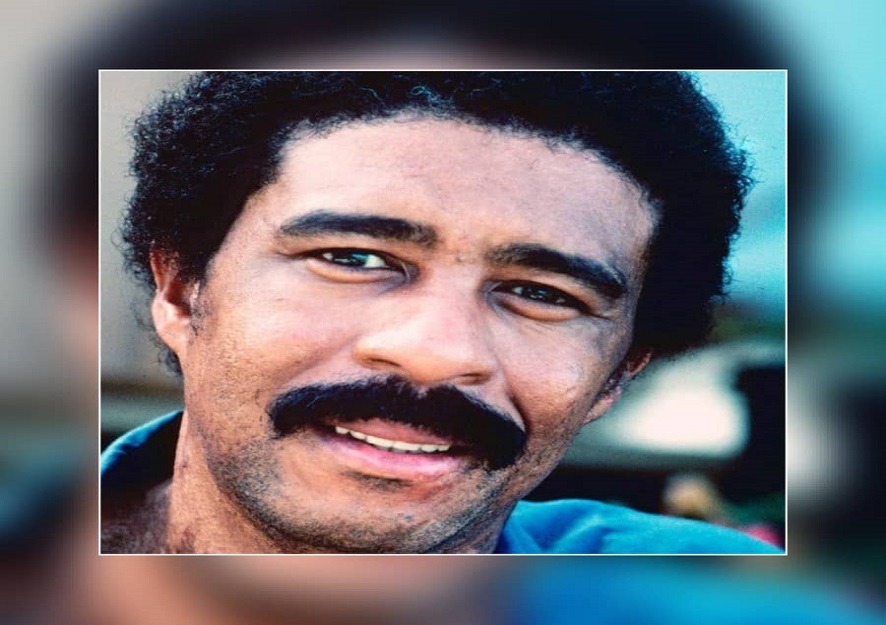Raised in a brothel, Richard Pryor emerged as one of the greatest and most influential stand-up comedians in history.
His impact on the comedy world paved the way for future stars like Eddie Murphy, Chris Rock, and Dave Chappelle, although he himself drew inspiration from Bill Cosby.
Born on December 1, 1940, in Peoria, Illinois, Pryor's childhood was marked by adversity.
His mother worked as a prostitute, and his father, a bartender, served in World War II.
As his parents divorced, Pryor found himself under the care of his grandmother, who ran the brothel where they lived.
To escape his grim reality, Pryor sought solace in movies.
However, he soon discovered another outlet for his emotions – making people laugh.
He embraced the role of class clown, using humor as a coping mechanism.
Yet, Pryor also struggled with a volatile temper.
At the age of 14, he was expelled from school, and his subsequent years were marked by a series of odd jobs.
In 1958, he joined the military but was discharged after getting into a fight with another soldier, abruptly ending his two-year stint.
Realizing he needed a stable source of income, Pryor decided to pursue a career in entertainment.
He started performing as a stand-up comic in African American clubs across the Midwest, honing his craft in cities like East St. Louis and Pittsburgh.
By 1963, Pryor had made his way to New York City.
The following year, he made his television debut on the variety show “On Broadway Tonight.”
This opened doors for guest appearances on popular programs such as “The Merv Griffin Show” and “The Ed Sullivan Show.”
During this time, Pryor modeled his act after his admired African American comedians, Bill Cosby and d–k Gregory.
As the late 1960s rolled in, Pryor's career gained momentum.
He secured small roles in films like “The Busy Body” (1967) and “Wild in the Streets” (1968).
He also released his first self-titled comedy album, showcasing his unique style.
In the early 1970s, Pryor experienced success both as an actor and comedian.
His supporting role in the Billie Holiday biopic “Lady Sings the Blues” (1972), starring Diana Ross, garnered him positive reviews.
Onstage, he captivated audiences with situational and character-driven humor, appealing to both white and black viewers.
By the late 1970s, Pryor had become a prominent figure in Hollywood.
He starred in box office hits such as “Silver Streak” (1976), alongside Gene Wilder and Jill Clayburgh, and “Greased Lightning” (1977), portraying the first African American stock car racing champion, alongside Beau Bridges and Pam Grier.
In 1983, Pryor's talent led him to become one of the highest-paid African American actors of the time.
He earned $4 million for his role as an evil henchman in “Superman III,” reportedly surpassing the film's star, Christopher Reeve.
Pryor's contributions to entertainment did not go unnoticed.
In 1998, he became the first recipient of the Mark Twain Prize for American Humor from the Kennedy Center.
He also won numerous awards throughout his career, including an Emmy Award in 1973 and five Grammy Awards in 1974, 1975, 1976, 1981, and 1982.
Comedy Central ranked him as the all-time greatest stand-up comedian, while Rolling Stone placed him at the top of their list of the 50 best stand-up comics of all time in 2017.
Beyond his professional accomplishments, Pryor's personal life was tumultuous.
He married seven times to five different women, often divorcing and remarrying the same individuals.
He fathered seven children with six different women.
While Pryor achieved success, he also battled inner demons.
In 1978, he faced legal trouble when he was arrested for drunk driving, resulting in a five-month jail sentence.
On June 9, 1980, Pryor made headlines when he set himself on fire after pouring 151-proof rum over his body.
He suffered severe burns covering more than half of his body and spent six weeks recovering in the Grossman Burn Center at Sherman Oaks Hospital.
His daughter attributed the incident to drug-induced psychosis.
Pryor struggled with addiction to freebase cocaine and experienced health issues as a result of his lifestyle.
In 1977, he suffered a mild heart attack at the age of 37.
Despite these challenges, he continued performing after recovering and resumed his career in January the following year.
In 1986, he was diagnosed with multiple sclerosis.
Tragically, on December 10, 2005, nine days after his 65th birthday, Pryor suffered a third heart attack in Los Angeles.
Attempts to resuscitate him by his wife were unsuccessful, and he was pronounced dead.
With his passing, the world lost a groundbreaking African American comedian and one of the most influential entertainers of the 1970s and 1980s.
Related Posts
- Sherri Shepherd Unveils Barbara Walters and Richard Pryor Connection
- Richard Pryor’s Wife Jennifer Lee Reveals Details About Late Comedian’s Relationships with Men
- Richard Pryor’s Wife Confirms Marlon Brando Affair: ‘Cocaine Induced Unusual Encounters’
- Richard Pryor’s Widow Reveals Insights Into His Daring Life
- Richard Pryor’s Widow Reveals He Was Unashamed of Fling with Marlon Brando































